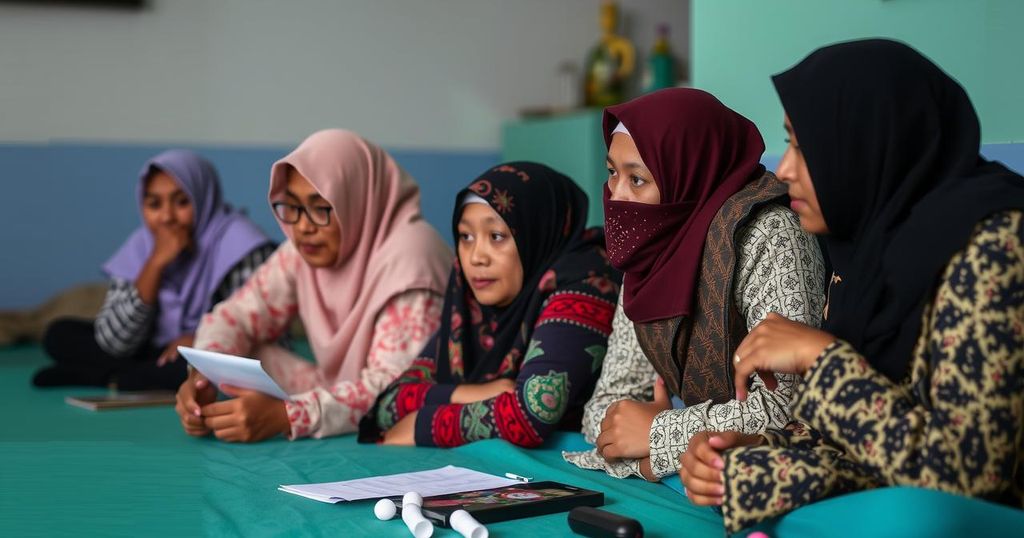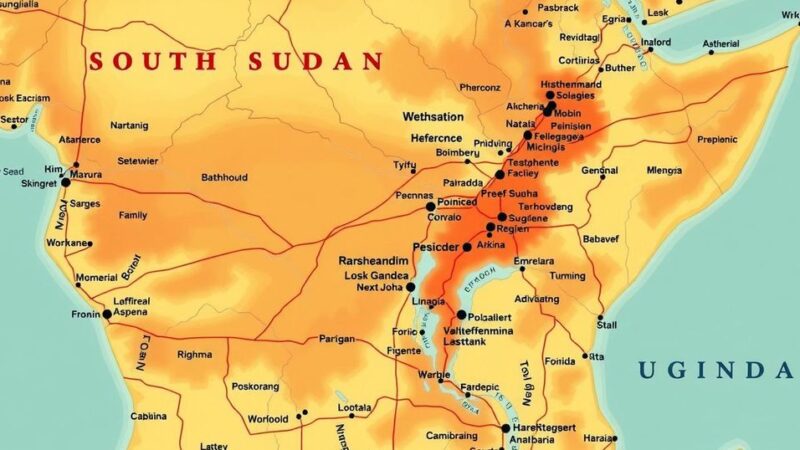Analysts recommend that Indonesia repatriate around 400 citizens associated with the Islamic State group from Syria. The unrest following the fall of Assad’s regime presents opportunities for safe repatriation. Experts warn of potential risks if these individuals remain in conflict zones and advocate for a careful, gradual approach to deradicalization and reintegration into society, highlighting the need for community support and tailored rehabilitation efforts.
Analysts advocate for Indonesia to repatriate close to 400 citizens associated with the Islamic State (IS) residing in Syria, particularly following the recent collapse of President Bashar al-Assad’s regime. They caution that failure to bring these individuals back could result in exploitation within ongoing conflicts or the possibility of their return to militancy. Academic experts, such as Yanuardi Syukur from the University of Indonesia, emphasize the need for a cooperative approach with the new Syrian leadership for safe repatriation and the deradicalization of returnees.
The Syrian conflict, which escalated in 2011, has created complex issues surrounding foreign fighters and their families, uniquely impacting Indonesia—home to the largest Muslim population. The National Counterterrorism Agency (BNPT) reports that 375 Indonesians, including children, are currently residing in Syrian camps like al-Hol, notorious for their harsh conditions. Analysts depict these sites as breeding grounds for extremism, given their poor living conditions and the potential for indoctrination.
Amidst Iraq and Syria’s shifting political landscape, there are concerns that repatriated former IS members might become mercenaries in ongoing conflicts. BNPT is currently evaluating repatriation processes and emphasizing the importance of deradicalization. Under President Prabowo Subianto’s administration, Indonesia’s approach marks a significant policy shift from the previous government, which had resisted repatriating citizens linked to IS. Yet, historical experiences of returnees link rehabilitation to potential security threats, raising questions about the effectiveness of deradicalization programs currently in place.
Experts urge that any process must be gradual, identifying individuals based on their ideological commitment to IS. Legal complexities regarding the status of children born within IS camps complicate the repatriation process, further emphasizing the necessity of tailored support for returnees. The involvement of civil society is crucial to integrating former militants back into their communities, as societal acceptance is vital to preventing recidivism.
This context places urgent pressure on the Indonesian government to act quickly. According to researcher Haula Noor, failure to repatriate these individuals risks them being exploited in the broader conflict, thus highlighting the moral and security imperative for Indonesia to take decisive action on behalf of its citizens trapped in the Syrian crisis.
The Islamic State group has significantly impacted international relations and counterterrorism efforts since its rise and fall. The Syrian conflict, catalyzed by the Arab Spring, resulted in many foreign fighters, including Indonesians, joining ISIS—a trend that raised complex national security challenges globally. Indonesia, grappling with its history of extremism, faces unique dilemmas regarding the repatriation of its citizens involved in the conflict, primarily due to the potential risks posed by returning fighters and their families.
The necessity for Indonesia to repatriate its citizens linked to the Islamic State in Syria is pressing due to both humanitarian and security considerations. With a new political landscape in Syria, coupled with the dire conditions faced by those in refugee camps, the time to act is now. Successful reintegration and deradicalization require targeted efforts, cooperation with Syrian authorities, and a supportive societal framework to mitigate the risks of recidivism and ensure the safety of both returnees and the Indonesian populace.
Original Source: www.benarnews.org






